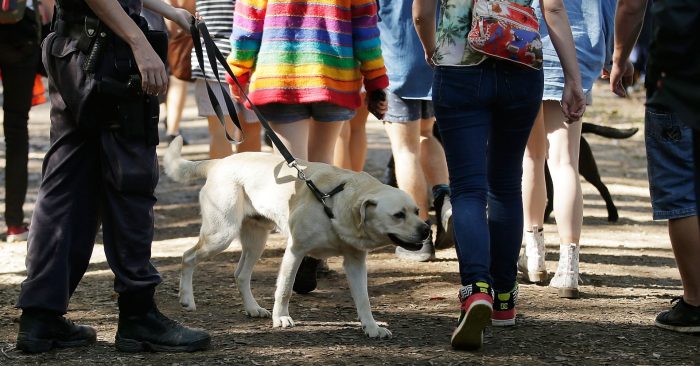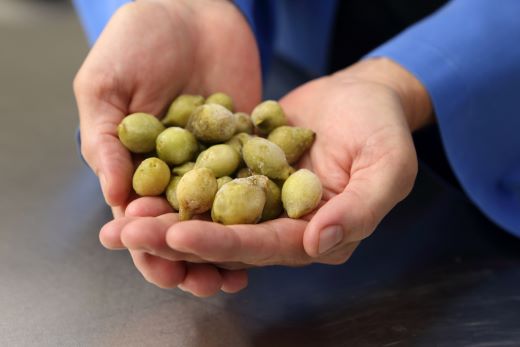A remarkable rise in the number of Queenslanders coming into contact with bats has sparked a warning from authorities.
Queensland Health has already seen a 30 percent increase in notifications of people who have been bitten or scratched by bats, potentially exposing them to Australian Bat Lyssavirus (ABLV), compared to last year.
Nigel Lott, 56 from Oxley, was scratched on the face by a bat while riding his bike home.
“I actually had a head-on collision with a bat while riding home. It clocked me on the side of the head,” he said.
“The next morning I rang 13HEALTH and they advised me to go to QEII Hospital. I had immunoglobulin for ABLV at the site of the wound and the rest in my arm.
“I also had four vaccinations. They said the risk of ABLV was low but strongly recommended that I have the course of injections.”
Mr Lott said he believes the flashing headlight on his helmet disorientated the bat.
Janine Barrett, Principal Veterinarian at Biosecurity Queensland, said that due to the dry conditions bats in south east Queensland were starving and the likelihood of contact with pets and people was unusually high.
“This spring-summer I anticipate we will see a high number of people and pets being potentially exposed to ABLV. Both starvation and heat-stress in bats make contact with a distressed bat more likely,” Dr Barrett said.
“However, if you see a bat, dead or alive, on the ground, don’t touch it. Only rabies vaccinated people who are experienced in handling bats and using appropriate personal protective equipment (e.g. specialised gloves) should rescue or examine a bat.
“If a bat needs help, contact the RSPCA on 1300 ANIMAL (1300 264 625) or a local volunteer wildlife care organisation for help to safely collect a live bat.
“Contact your local veterinarian if you suspect that your pet might have been bitten or scratched by a bat.”
Dr Heidi Carroll, Queensland Health Medical Director of the Communicable Diseases Branch, said each year in Queensland there were approximately 300 reported cases of potential exposure to ABLV due mainly to untrained people handling bats.
“The message ‘don’t touch bats’ isn’t new advice, but it’s important advice that people should take seriously,” Dr Carroll said.
“When people try to move a bat that appears to be dead or injured, that’s when they are most likely to be scratched or bitten.
“Scratches, bites and bat saliva into the eyes, nose or mouth are very serious and require immediate medical assessment to prevent the potential development of ABLV infection.”
If you are bitten or scratched by a bat or exposed to bat saliva:
- Immediately wash the wound gently with soap and water for at least 5 minutes.
- If available, apply an antiseptic such as Betadine after washing.
- If bat saliva has got into your eyes, nose or mouth, flush the area thoroughly with water.
- Immediately contact a doctor to arrange vaccination.
- Contact the RSPCA hotline on 1300 ANIMAL (1300 264 625) or a wildlife carer to collect the bat for testing, if it is available.
“It’s important to note that there is no evidence that ABLV can be spread from bat and flying foxes faeces (droppings) or urine to humans,” Dr Carroll said.
“However, as with any contact with animal droppings or urine, people should practice good hygiene. Hands should always be washed with soap and water after contact with bat urine or droppings.”








